News
Published on Thu, 2012-02-09 12:57
Developing countries could be badly hit by the new global downturn, warned participants in a South Centre conference that also discussed on Feb 2-3 in Geneva the state of WTO negotiations. Martin Khor, Executive Director of this intergovernmental policy think tank of developing countries, gave a report on the conference in his most recent column for The Star, one of the leading Malaysian newspapers.
|
Published on Thu, 2012-02-09 08:34
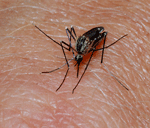
A mosquito biting the photographer.
(Photo: dr_relling/Flickr/CC)
|
A team of scientists from the Max Planck Institute for Evolutionary Biology in Germany found critical failures in the regulatory processes of the first three countries (Malaysia, US and the Cayman Islands) permitting releases of genetically modified (GM) insects in terms of transparency and scientific quality, reported the Third World Network Biosafety Information Service.
|
Published on Wed, 2012-02-08 12:21
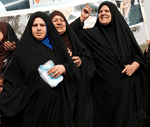
Iraqi women chant campaign
slogans. (Photo: Al Jazeera English
/Flickr/CC)
|
Members of the Iraqi Parliament promised to make serious efforts to approve laws in order to ensure all women the enjoyment of their social and economic rights, guaranteed by the Constitution, at the request of Iraqi Al-Amal Association, focal point of Social Watch in that country.
|
Published on Tue, 2012-02-07 07:56
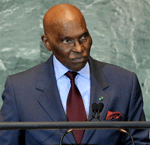
Abdoulaye Wade. (UN Photo)
|
The civil society organizations gathered in Social Watch Benin invited the incumbent President of Senegal, Abdoulaye Wade, who is seeking a third term in office, “to take a peaceful retirement,” the network said in a statement published on Thursday.
|
Published on Mon, 2012-02-06 07:50
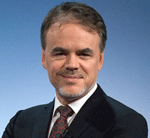
Jim Stanford, (Photo: CAW/TCA)
|
Political leaders boast that the Canadian economy has fully recovered from the recession, and that it was not as severe there as it was in other countries. It turns out that both of those claims are false because they don't take population growth into consideration, according to a study released by the Canadian Centre for Policy Alternatives (CCPA, one of the focal points of Social Watch)
|
Published on Fri, 2012-02-03 07:38
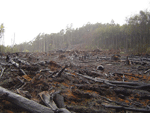
Photo : Crustmania/Flickr/CC
|
New factors in deforestation like the world economic crisis, speculation in markets for basic products and arable land, and worsening poverty and climate change are aggravating the old causes of this phenomenon such as the advance of agricultural frontiers, tree cutting for timber and fuel, and the use of wood as a fuel. This problem is reported and documented in the Social Watch Report 2012.
|
Published on Thu, 2012-02-02 08:13
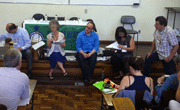
Photo: Agência Jovem de Notícias.
|
“Inequality is the reason why, contradicting all the theories and models, world poverty is not diminishing or is doing so only very slowly even in countries where the economy is growing quickly,” according to Roberto Bissio, the coordinator of Social Watch, speaking at the presentation of the Portuguese edition of the latest annual report by this international network of civil society organizations.
|
Published on Wed, 2012-02-01 08:18
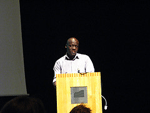
Philip Thigo. (Photo: Indigo Trust)
|
The Indigo Trust, a foundation based in London that funds technology-driven projects to bring about social change in African countries, awarded the Social Development Network (SODNET, focal point of Social Watch in Kenya) a grant of £30,750 that acknowledges its consistent work to improve the lives of ordinary citizens through its Infonet programme.
|
Published on Tue, 2012-01-31 07:48
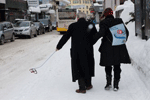
Demonstration at Davos. (Photo:
Eliane Baumberger/Aliance Sud)
|
Fifty "invisible" dogs strayed through the streets of Davos last Wednesday, within sight of the World Economic Forum (WEF). The European Coalition for Corporate Justice drew much attention with a rally, calling to put corporations on a short leash – like the invisible dogs. The heads of Greenpeace International and Amnesty International supported the alliances' core demand: corporations should be required by law to comply with human rights and environmental standards.
|
Published on Tue, 2012-01-31 07:43
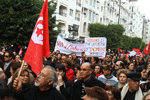
Photo: TunisiaLive
|
Thousands of demonstrators chanted “No to violence”, ”No to extremism”, “No Niqab, no to Salafism” and “Universities are free, extremism out,” at a march that took place in Tunis last Saturday, convened by political parties, unions and civil society organizations calling for freedom of expression. Violations and assaults committed by a group of Salafists against residents of Sejnane were confirmed by Abdel Sattar Ben Moussa, President of the Tunisian League of Human Rights (LTDH, one of the national focal points of Social Watch).
|
SUSCRIBE TO OUR NEWSLETTER
Submit

|











